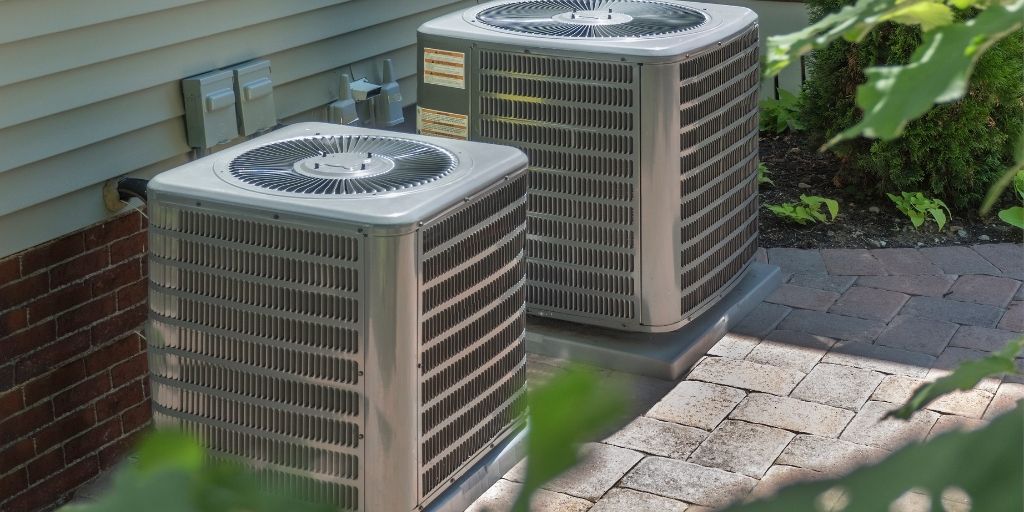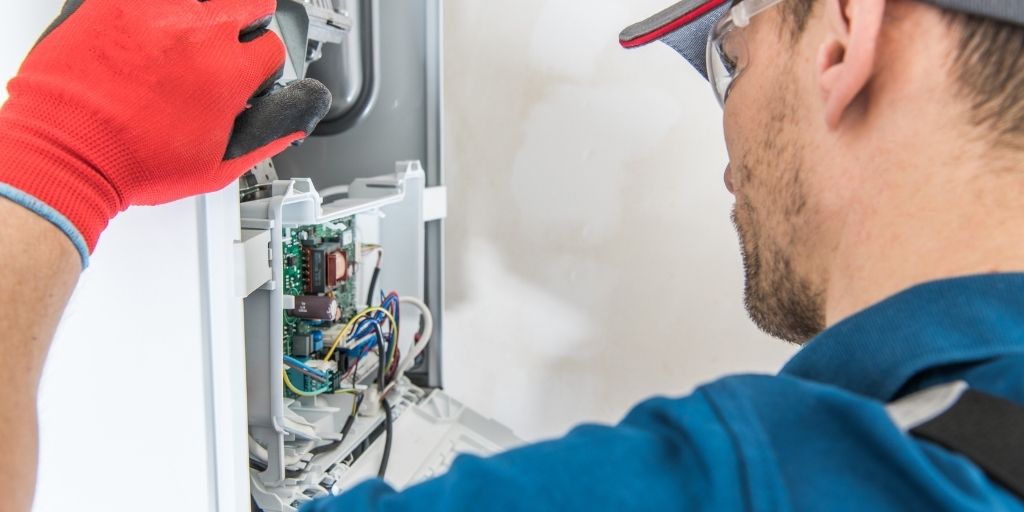If your living space does not have or allow for central air, you already know how hot and miserable it gets during the summer. However, with a variety of window air conditioning units currently available on the market, you no longer have to face those warmer months with dread and agony.
Enjoy the comfort afforded to you by installing a mini window air conditioner. If you are looking to cool a smaller area, such as a studio apartment or dorm room, cut back on the noise and save space and money by purchasing a mini window air conditioner.
In this guide, learn everything you need to know about mini window air conditioners. We outline five factors you need to consider to help you find the best window air conditioner: size, energy efficiency, installation, reviews, and warranties.
WHAT IS A MINI WINDOW AIR CONDITIONER?
In the past, window AC units were noisy and inefficient. Today’s models feature improved fan and compressor designs, which help units operate more quietly while delivering enhanced airflow. What distinguishes mini window air conditioner units from standard window AC units are their size and output potential.
Mini window air conditioners cool areas measuring 100-300 square feet. The energy capacity of these smaller units generally averages 5,000-6,500 BTU (British Thermal Units): the higher the BTU, the higher the cost to run the appliance.
Air conditioners typically require 20 BTU per each square foot of living space. However, the number of BTUs needed to cool your space also depends on other factors like the amount of shade or sunlight in the room and whether electronics are operating in the room.
As the name suggests, to use a mini window air conditioner, the unit is installed in your window and utilizes a nearby power outlet for electricity. Small units can be plugged into any 15-20-amp, 115-volt circuit that is not operating other major devices. The best window air conditioner units fit in even the tiniest windows, such as those less than two feet wide. Many of today’s small window units can be controlled via remote or even by a smartphone app.
5 STEPS TO FIND THE BEST MINI WINDOW AIR CONDITIONER
You can determine the best window air conditioner for your needs by considering these five factors.
Size
As you begin your search for a new window AC unit, you will need to determine the optimal size for your circumstances. First, measure the window to see how much space you have. Then, find the exact amount of square footage you need to cool. Finally, consider how much direct sunlight or shade the room gets.
All of these considerations will better inform you on the degree of BTU your space requires. Energy Star provides an excellent square footage/BTU chart for reference.
Energy-efficiency ratings
Mini window air conditioner efficiency is represented by its energy efficiency ratio(EER). This number is the ratio of the unit’s cooling capacity in BTU to the power input in watts. Look for a unit with a higher EER number for the most efficiency and to save money on your electric bill.
Installation
While most mini window air conditioner units can be installed DIY-style, consult the installation manual before proceeding with the installation. Read through the instructions to ensure you feel comfortable and qualified enough to take on the installation by yourself. If you find that the process is too grueling, contact a local HVAC professional to install the unit for you.
Mini window air conditioner reviews
Another important factor to consider before investing in a mini window air conditioner is reviews. Visit consumer report websites, home improvement store product pages, and other online retail review sites to see what experts and buyers think about different models. A few essential performance areas to keep an eye out for include customer satisfaction, ease of installation, reliability, and maintenance.
Warranties
When you make an important appliance purchase, you should be informed of the warranty policies associated with the product. This is true for mini window air conditioner units, as some companies may provide different levels of protection and replacement should you run into mechanical or parts issues.
Though the average lifespan of a window air conditioner is about 10 years, a unit’s longevity can depend on other factors such as degree of use and level of upkeep. Some companies offer warranties that last through the unit’s expected lifespan, while others offer a flat five-year warranty for parts. Be sure to shop around and compare warranty options before making a decision.






